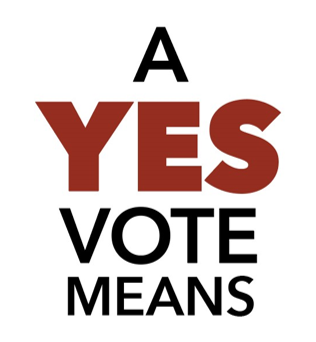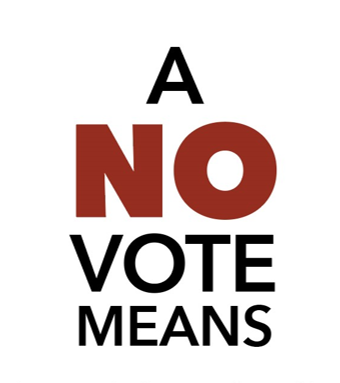Ballot Question
There is ONE Ballot Questions that would change the Philadelphia City Home Rule Charter. The Charter is our City version of a constitution, and changes to it must be approved directly by the voters in a popular “YES / NO” vote, in the form of a BALLOT QUESTION. Each question is discussed below, with thanks to Committee of Seventy and Philadelphia Inquirer for adapted text.
Question: (Resolution 230750; Bill No. 230740)
Should the Philadelphia Home Rule Charter be amended to require the City to provide for the indemnification and defense of registered community organizations in connection with claims made against them arising directly out of their lawful participation in the City’s zoning variance process?
CONTEXT: Rules about how land and buildings can be used and built are called zoning. Registered Community Organizations, or “RCO’s,” are community groups that are expected to provide input on how those zoning rules are applied in their communities. For example, RCO’s provide input when a landowner requests an exception from standard zoning rules, called a variance. Sometimes lawsuits are brought against RCO’s related to their participation in the variance request process, which can be costly and limit community input.

If you vote YES, that means you approve of requiring the City to devise a system to help RCO’s pay for the costs of defending against such lawsuits, which may include the costs associated with losing or settling the lawsuits. This amendment to Philadelphia’s Home Rule Charter, spearheaded by former City Council president Darrell Clarke and adopted unanimously by Council, would enable the city’s Law Department to help defray legal costs borne by Philadelphia’s Registered Community Organizations when they’re sued by developers for opposing their project proposals. RCOs are volunteer organizations recognized by the city to monitor real-estate activity in their neighborhoods; most don’t have the financial resources to defend themselves in suits or pay damages if they lose them. Indeed, an Old City RCO dissolved because it was unable to get insurance against lawsuits, and one in Bustleton faced a 12-fold increase in its premiums after it was sued. Should the measure pass, the City could help organizations in similar circumstances.

If you vote NO, that means you would prefer that RCO’s continue to operate without assistance from the City. Opponents say that RCOs operate under vague rules, can lack transparency and be reflexively opposed to larger developments, especially those they say could decrease the availability of on-street parking. And, as Building Industry Association of Philadelphia VP Mo Rushdy put it to The Inquirer: “This bill gives RCOs a blank check to fight developers.”